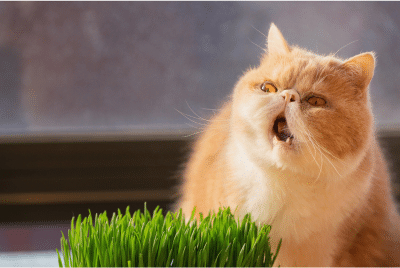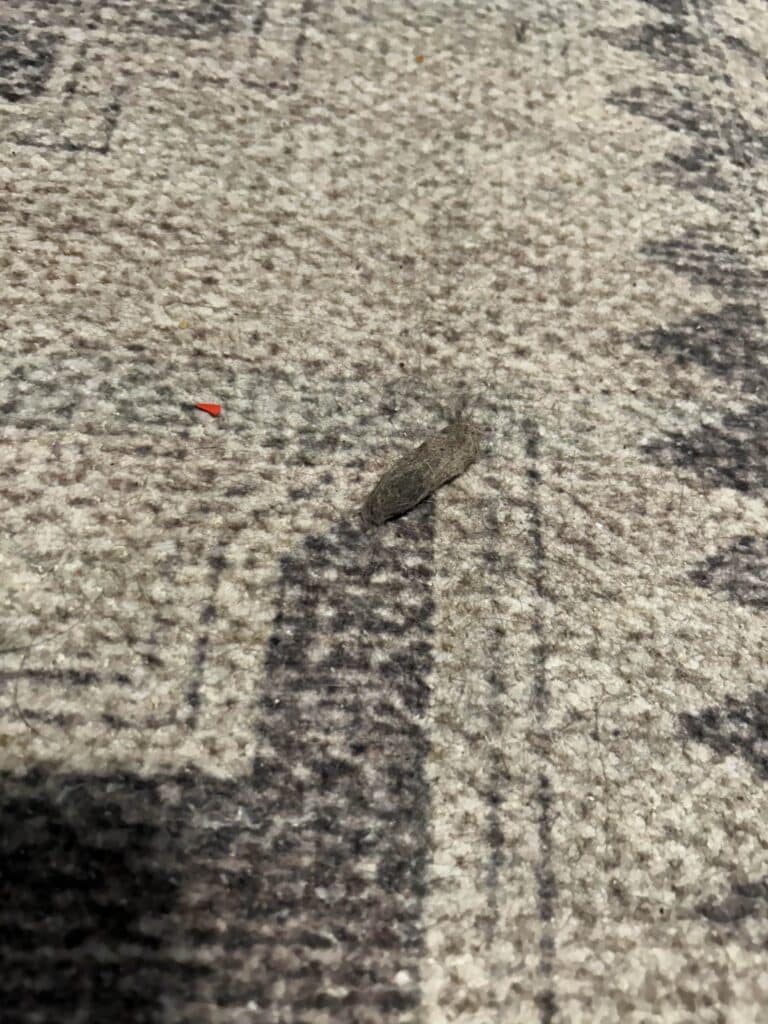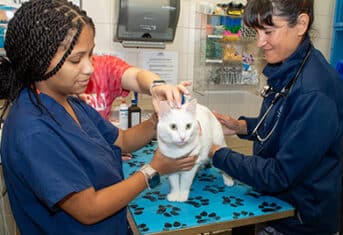Why does my cat eat plants? Does it help with hairballs?

Why does my cat eat plants? Does it help with hairballs?
Hairball Awareness Day is celebrated on the last Friday in April. This year it falls on April 26th. Like many cat owners, I find hairballs one of the more annoying facts of cat ownership. I hate stepping on those cold, slimy, cigar-shaped wads of hair strategically deposited on the bedroom rug in the pathway to bathroom. Even with the light on, the hairballs are always perfectly camouflaged by the pattern in the rug. I am not the only one who thinks hairballs are important. Since 2020, when using the PubMed search engine I found seven scientific publications on hairballs; six studied domestic cats and one reported on hairballs in snow leopards. This new information on feline hairballs will be the focus of this blogpost.
Plant Consumption and Hairballs

Many cats eat plants, and many indoor cats have “cat grass” as part of their environmental enrichment program. There are several theories why an obligate carnivore like a cat would eat plants. The first theory is that cats eat plants because they have an upset stomach. The second theory is that cats eat plants because they need to vomit. The third theory is that cats eat plants to help pass hair ingested during grooming and, thus, long haired cats consume more plants than short haired cats.
Using the responses of over 2,000 cat owners to an internet-based survey, one recent study looked at plant-eating cats and hairballs. Nearly three-quarters of cats ate plants, the researchers found, and many of those cats ate plants on a weekly basis. However, these authors’ results were mostly at odds with current beliefs about cats that eat plants. They found no differences between plant consumption in shorthair versus long-haired cats, suggesting plant eating is not associated with the need to expel ingested hair. Cats did not exhibit signs of illness prior to eating plants, suggesting this is not an illness behavior and may simply be normal cat behavior. But the theory that cats might eat plants in order to vomit was, in fact, supported by the data from the owners’ survey. The trigger for this behavior remains unknown.
Snow Leopards, Plant Consumption and Hairballs
Other than size, your domesticated cat is very similar to tigers and snow leopards. No surprise then that snow leopards yak up hairballs now and again just like your housecat. Additionally, snow leopards have very dense coats, meaning more hair to ball up in the intestinal tract. Researchers studied captive snow leopard scat (the scientific word for wild animal poop) and quantified the amount of hair and plant material contained in the scat.
They also observed vomiting and plant eating behavior. Through these analyses, they determined plant ingestion appears to be normal in snow leopards, very similar to the pet cat study above. But, in snow leopards, plant ingestion did not provoke vomiting, contrary to the pet cat study. The amount of hair passed in the scat was in no way related to the amount of plant material in the scat. Thus, these scientists debunked two hypotheses: 1. that snow leopards eat plants to help them pass hairballs and 2. plant consumption causes snow leopards to vomit.
The Takeaway: Feline Plant Eating is Normal, Does Not Help With Hairballs
Taken together, these two studies tell cat owners that plant eating appears to be normal in many cats but is not likely to help hairballs pass. If eating plants causes a lot of vomiting in your cat, remove the plant and try a different type of cat grass. Remember, not all plants are feline friendly. For a list of toxic and non-toxic plants, check out this information from AMC’s Usdan Institute for Animal Health Education.
And don’t forget, dogs get hairballs too.

































